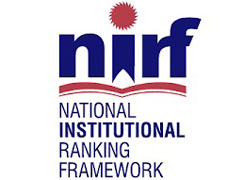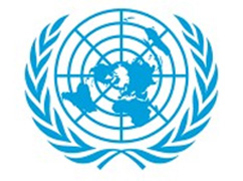The primary objective of the Environment and Sustainability Cohort is to foster awareness and understanding of environmental issues and sustainability, while aligning with the Sustainable Development Goals (SDGs) 7, 13 and 15. It aims to promote and instill practices of environmental sustainability by implementing a range of initiatives that are designed to engage individuals and communities in taking proactive steps towards creating a sustainable future.
The primary objective of the Environment and Sustainability Cohort is to foster awareness and understanding of environmental issues and sustainability, while aligning with the Sustainable Development Goals (SDGs) 7, 13 and 15. It aims to promote and instill practices of environmental sustainability by implementing a range of initiatives that are designed to engage individuals and communities in taking proactive steps towards creating a sustainable future. By raising awareness and educating on environmental challenges, the cohort empowers participants to make informed decisions and take meaningful action.

The Clean and Green Initiative aims to promote environmental sustainability and improve the quality of life by aligning with the United Nations’ Sustainable Development Goals (SDGs) of Clean Water and Sanitation (SDG 6), Affordable and Clean Energy (SDG 7), Climate Action (SDG 13) and Life on Land (SDG 15). The effort includes a variety of initiatives aimed at reducing pollution and maintaining environmental cleanliness, as well as afforestation drives to boost green cover and animal welfare programmes. In line with the SDGs, the overriding goal is to stimulate the adoption of sustainable living practices and raise awareness about environmental concerns. Collaborative efforts to clean up and green our neighborhoods can result in a healthier, happier and more sustainable society for current and future generations.
The Clean and Green Initiative aims to promote environmental sustainability and improve the quality of life by aligning with the United Nations' Sustainable Development Goals (SDGs) of Clean Water and Sanitation (SDG 6), Affordable and Clean Energy (SDG 7), Climate Action (SDG 13) and Life on Land (SDG 15). The effort includes a variety of initiatives aimed at reducing pollution and maintaining environmental cleanliness, as well as afforestation drives to boost green cover and animal welfare programmes. In line with the SDGs, the overriding goal is to stimulate the adoption of sustainable living practices and raise awareness about environmental concerns. Collaborative efforts to clean up and green our neighborhoods can result in a healthier, happier and more sustainable society for current and future generations.

The Environment and Sustainability Outreach Programme is an effort that promotes environmental sustainability, awareness-raising and capacity building, in accordance with the United Nations’ Sustainable Development Goals. The goal is to promote sustainable practice in communities through educational sessions and seminars on themes including climate change, energy saving and waste management. These lectures and workshops are intended to give participants practical knowledge and skills that will assist them in implementing more sustainable practices in their daily lives. The strategy of the programme in interacting with schools, universities, organisations and the community can help to make a larger impact and contribute to the ultimate goal of sustainable development.
The Environment and Sustainability Outreach Programme is an effort that promotes environmental sustainability, awareness-raising and capacity building, in accordance with the United Nations' Sustainable Development Goals. The goal is to promote sustainable practice in communities through educational sessions and seminars on themes including climate change, energy saving and waste management. These lectures and workshops are intended to give participants practical knowledge and skills that will assist them in implementing more sustainable practices in their daily lives. The strategy of the programme in interacting with schools, universities, organisations and the community can help to make a larger impact and contribute to the ultimate goal of sustainable development.

The Waste Management and Circular Economy Drive Initiative is a programme aimed at promoting sustainable waste management practices and raising awareness about the circular economy. It will conduct drives to educate the community about proper waste disposal and the importance of 5Rs: Reuse, Reduce, Recycle, Research and Regenerate.
Overall, it aims to foster a culture of responsible waste management and environmental stewardship among students and the larger community.
The initiative is in line with the United Nations’ Sustainable Development Goals, particularly Goal 12, which includes Responsible Consumption and Production, calling for sustainable use and management of natural resources, reducing waste generation and promoting the circular economy.
The Waste Management and Circular Economy Drive Initiative is a programme aimed at promoting sustainable waste management practices and raising awareness about the circular economy. It will conduct drives to educate the community about proper waste disposal and the importance of 5Rs: Reuse, Reduce, Recycle, Research and Regenerate.
Overall, it aims to foster a culture of responsible waste management and environmental stewardship among students and the larger community.
The initiative is in line with the United Nations' Sustainable Development Goals, particularly Goal 12, which includes Responsible Consumption and Production, calling for sustainable use and management of natural resources, reducing waste generation and promoting the circular economy.

This programme will work closely with the Parivarthana Unit, seeking to promote waste segregation, recycling and the utilisation of eco-friendly products, through initiatives such as setting up Parivarthana Stalls, strategically located in key areas, in order to showcase and promote sustainable products offered by the Parivarthana Unit. These stalls will serve as platforms to educate and engage the public on the importance of waste management and recycling. Through interactive displays, informative materials and engaging activities, the aim is to raise awareness and inspire individuals to embrace eco-friendly alternatives everyday. It also aims to focus on Unit Exposures, allowing participants to gain firsthand experience and understanding of the Parivarthana Unit and its operational processes. The programme strives to create a meaningful impact on the environment and community. By promoting sustainable alternatives, encouraging responsible waste management and driving behavioural change, the vision is towards a greener and cleaner future.
Note: This programme will have five separate teams – Exposure, Stall, Events and Logistics, Networking, Communication team and Media.
This programme will work closely with the Parivarthana Unit, seeking to promote waste segregation, recycling and the utilisation of eco-friendly products, through initiatives such as setting up Parivarthana Stalls, strategically located in key areas, in order to showcase and promote sustainable products offered by the Parivarthana Unit. These stalls will serve as platforms to educate and engage the public on the importance of waste management and recycling. Through interactive displays, informative materials and engaging activities, the aim is to raise awareness and inspire individuals to embrace eco-friendly alternatives everyday. It also aims to focus on Unit Exposures, allowing participants to gain firsthand experience and understanding of the Parivarthana Unit and its operational processes. The programme strives to create a meaningful impact on the environment and community. By promoting sustainable alternatives, encouraging responsible waste management and driving behavioural change, the vision is towards a greener and cleaner future.
Note: This programme will have five separate teams - Exposure, Stall, Events and Logistics, Networking, Communication team and Media.

The Social Entrepreneurship, Swachhata, and Rural Engagement Cell (SES REC) initiative is a programme launched by the Government of India to promote sustainable development in rural regions. It includes a variety of activities, such as promoting greenery, energy efficiency camps to raise awareness about conservation and renewable energy sources and providing participants with practical advice on adopting energy-efficient practices in their daily lives, promoting swachhata (cleanliness) and waste management through training.
Furthermore, the project would promote social entrepreneurship in rural areas through training, coaching and financial support, enabling people to develop and expand enterprises to meet local needs and create jobs.
Overall, the SES REC effort attempts to build a culture of sustainable development and environmental care through engagement with villages and project areas.
The Social Entrepreneurship, Swachhata, and Rural Engagement Cell (SES REC) initiative is a programme launched by the Government of India to promote sustainable development in rural regions. It includes a variety of activities, such as promoting greenery, energy efficiency camps to raise awareness about conservation and renewable energy sources and providing participants with practical advice on adopting energy-efficient practices in their daily lives, promoting swachhata (cleanliness) and waste management through training.
Furthermore, the project would promote social entrepreneurship in rural areas through training, coaching and financial support, enabling people to develop and expand enterprises to meet local needs and create jobs.
Overall, the SES REC effort attempts to build a culture of sustainable development and environmental care through engagement with villages and project areas.
Address
Bangalore Yeshwanthpur Campus
Nagasandra, Near Tumkur Road, Bangalore,
Karnataka-560073
Telephone
Mail Us At



